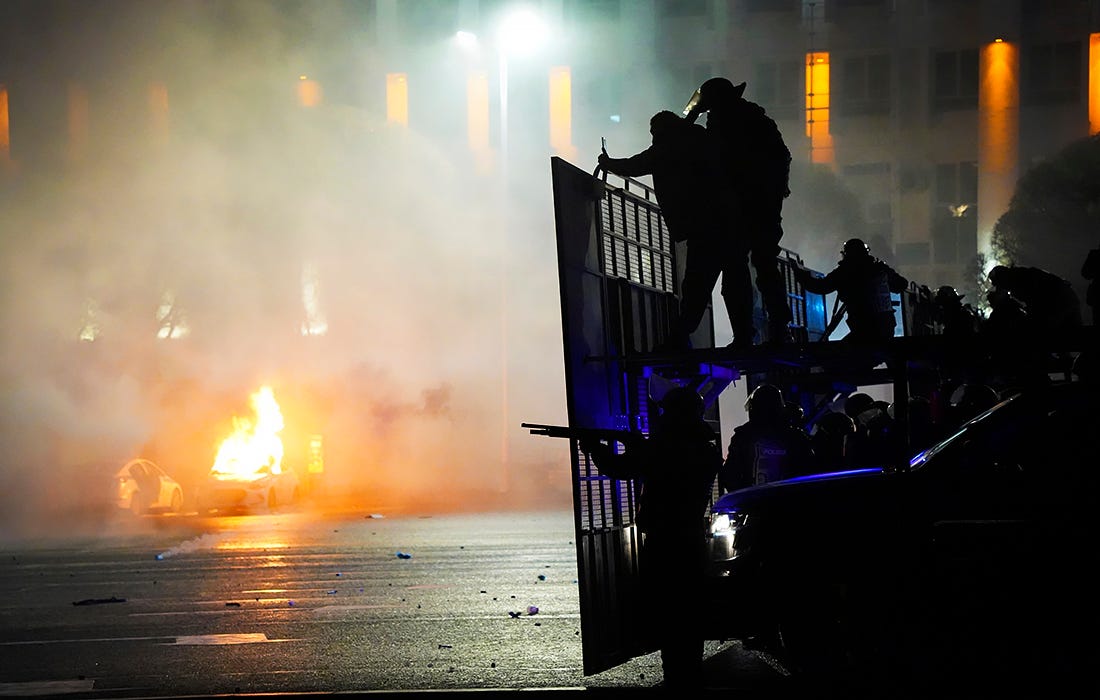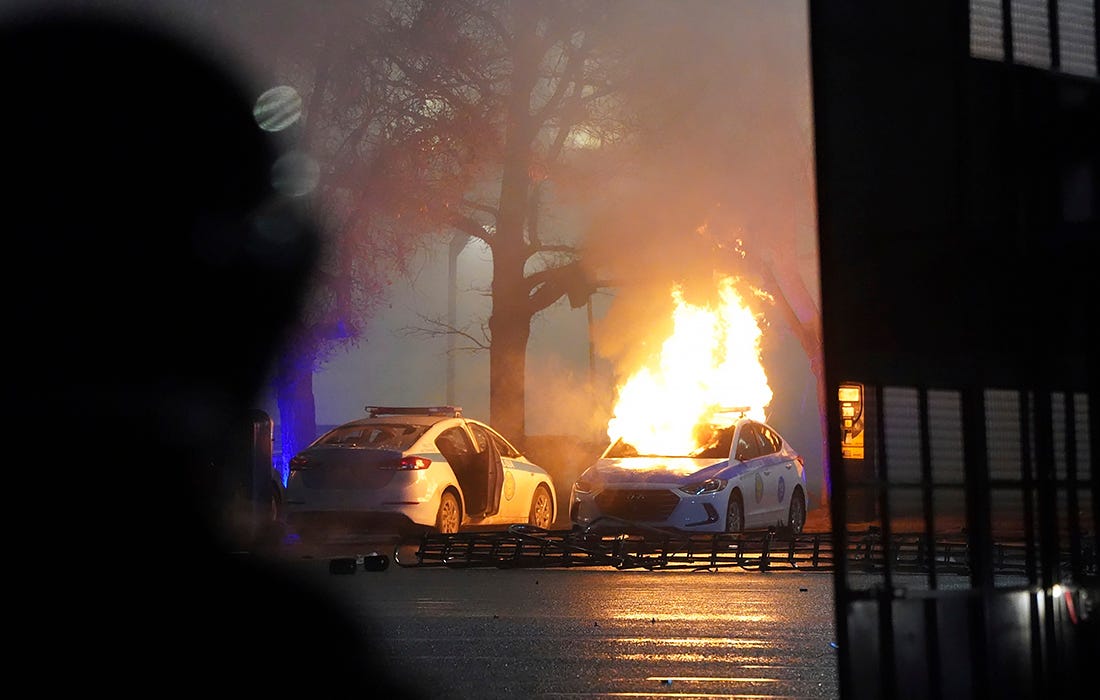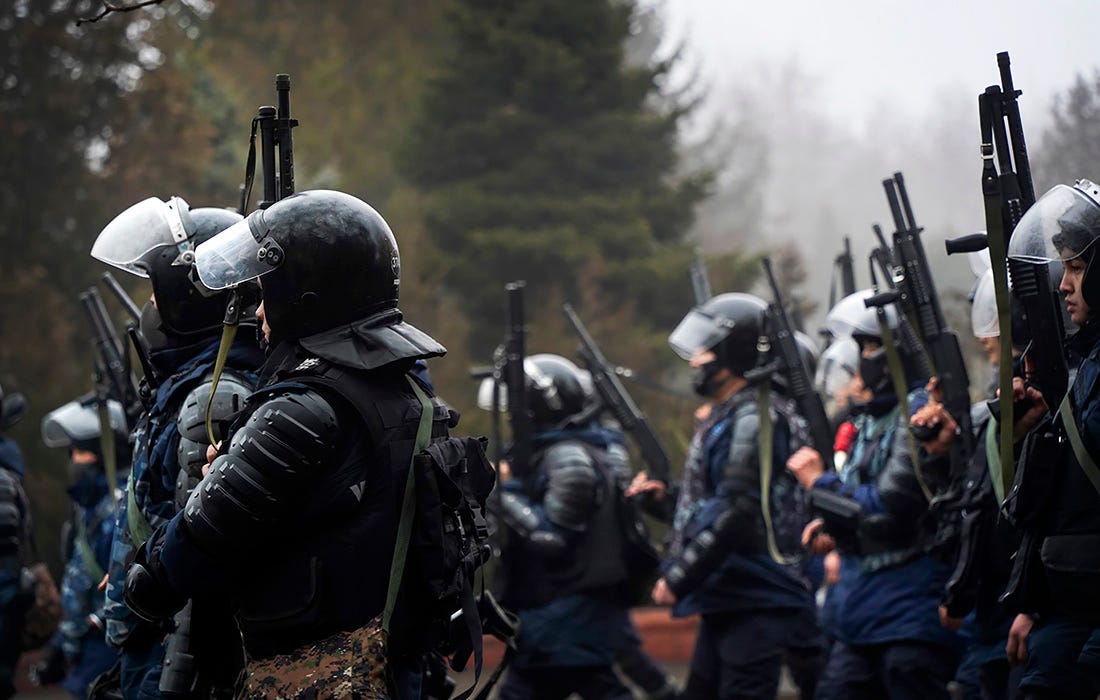In countries with authoritarian regimes, political unrest can arise for unexpected reasons.
On January 1, 2022, the government of Kazakhstan decided to raise the price of liquified gas from 60 to 120 tenge/liter (from $0.525 to $1.05/gal). Before that, for many years, the country’s authorities promoted gas as fuel for cars, saying it was much cheaper than traditional gasoline. Many households heeded these calls and upgraded their vehicles. A sharp increase in the price of fuel was a severe blow to them, and on January 2, in the city of Zhanaozen in the west of the country, mass protests against the authorities’ decision began. The next day, the government promised to reduce prices to 80-90 tenge, but that did not stop the protests, spreading throughout the country.
On January 4, the protests covered the whole of Kazakhstan—including the capital city, Nur-Sultan, the largest city of the country, Almaty, and the other biggest cities (Karaganda, Uralsk, Taldykorgan, Kyzylorda, Shymkent). Clashes with the police began; the protesters started to make political demands, mainly with the slogan: “Grandfather, go away!” “Grandfather” is what the protesters called the former President of the country, Nursultan Nazarbayev, who, after leaving the President’s office in March 2019, retained control over the security agencies, remaining the head of the Security Council. In addition, a significant part of Kazakhstan’s government was formed from his appointees.
On Wednesday night, now-President Kassym-Jomart Tokayev imposed a state of emergency in the capital Nur-Sultan the city of Almaty and the Almaty and Mangistau regions (where the protests began), but this did not help. On the morning of January 5, protesters in Almaty seized the building of the city administration, the office of the General Prosecutor, and the former residence of the President. After rumors surfaced that the Kremlin had sent two planes with Russian special forces, protesters seized Almaty airport, halting its operation. In the middle of the day, President Tokayev announced the government’s resignation and the dismissal of Samat Abish, the First Deputy Chairman of the country’s KGB and Nazarbayev’s nephew. On Wednesday evening, Tokayev announced Nazarbayev’s resignation as head of the Security Council, saying he himself would take over the post.
As night fell in Kazakhstan (plus 3 hours Moscow time, plus 10 hours Washington time), activity on both sides came to a halt. The internet is down in the country, several television channels have stopped working, and Kazakh websites have become inaccessible. President Tokayev has stated that he intends to keep power in his hands.
Of course, now it is impossible to predict what will happen tomorrow or the day after tomorrow. The protesters will likely be satisfied with Nazarbayev and his clan stepping down, and the situation will gradually calm down. Or maybe the protests will grow, and President Tokayev will want to use force to suppress them. After that, he’ll become yet another despot of the East, holding power by force. Or maybe Tokayev will decide to form a broad coalition with the participation (even if feeble) of the opposition or people not related to Nazarbayev and gradually move from authoritarian rule to a democratic state. All this remains to be seen.
However, we can already predict that the events in Kazakhstan, regardless of how they will end up, will be important for Russia. I have no doubt that they will be another argument for Vladimir Putin in favor of lifetime rule. Before his eyes, the attempt at a “Deng Xiaoping-style” soft transfer of power, whereby the outgoing leader retains serious levers of power to ensure his personal security and to preserve the political structure he built, is collapsing. And it is unlikely that what is happening in Kazakhstan suits Putin as the political future of Russia and himself personally.
Late last night, President Tokayev imposed a state of emergency throughout the country and asked for help from еру Collective Security Treaty Organization (CSTO) heads of state to overcome the terrorist threat.
(СSTO includes Russia, Armenia, Belarus, Kazakhstan, Kyrgyzstan, and Tajikistan.)
“Today, I addressed the heads of CSTO states [with a request] to assist Kazakhstan in overcoming this terrorist threat. It is no longer a threat, but an undermining of the integrity of the state, and most importantly, it is an attack on our citizens, who are asking me as head of state to assist them urgently.”
“The terrorist gangs are essentially international, they have received serious training abroad, and their attack on Kazakhstan can and should be seen as an act of aggression.”
“I think that the people of Kazakhstan will support this decision. We will win together.”
The CSTO Collective Security Council Chairman, Armenian Prime Minister Nikol Pashinyan, wrote on Facebook:
“A few minutes ago, we had a phone conversation with the President of Kazakhstan Kassym-Jomart Tokayev. Considering the appeal of the President of Kazakhstan, who expects CSTO support in overcoming the current situation, as Chairman of the CSTO Collective Security Council, I start immediate consultations with the leaders of the member countries of the organization.”
All this reminds me Hungary-1956…







